Now, six months later, those mornings in the city have entered Joburg's permanent record in the form of a monumental artwork, titled Jozi My Jozi, by Mbongeni Buthelezi, a Joburg-based artist who has spent the past 30 years honing his extraordinary medium – plastic, that would otherwise find its way to a landfill. Buthelezi, the only artist to work in this way, uses a heat gun on discarded plastic to create intensely layered portraits and landscapes that resemble oil paintings from a distance. Read our interview with Mbongeni Buthelezi here.
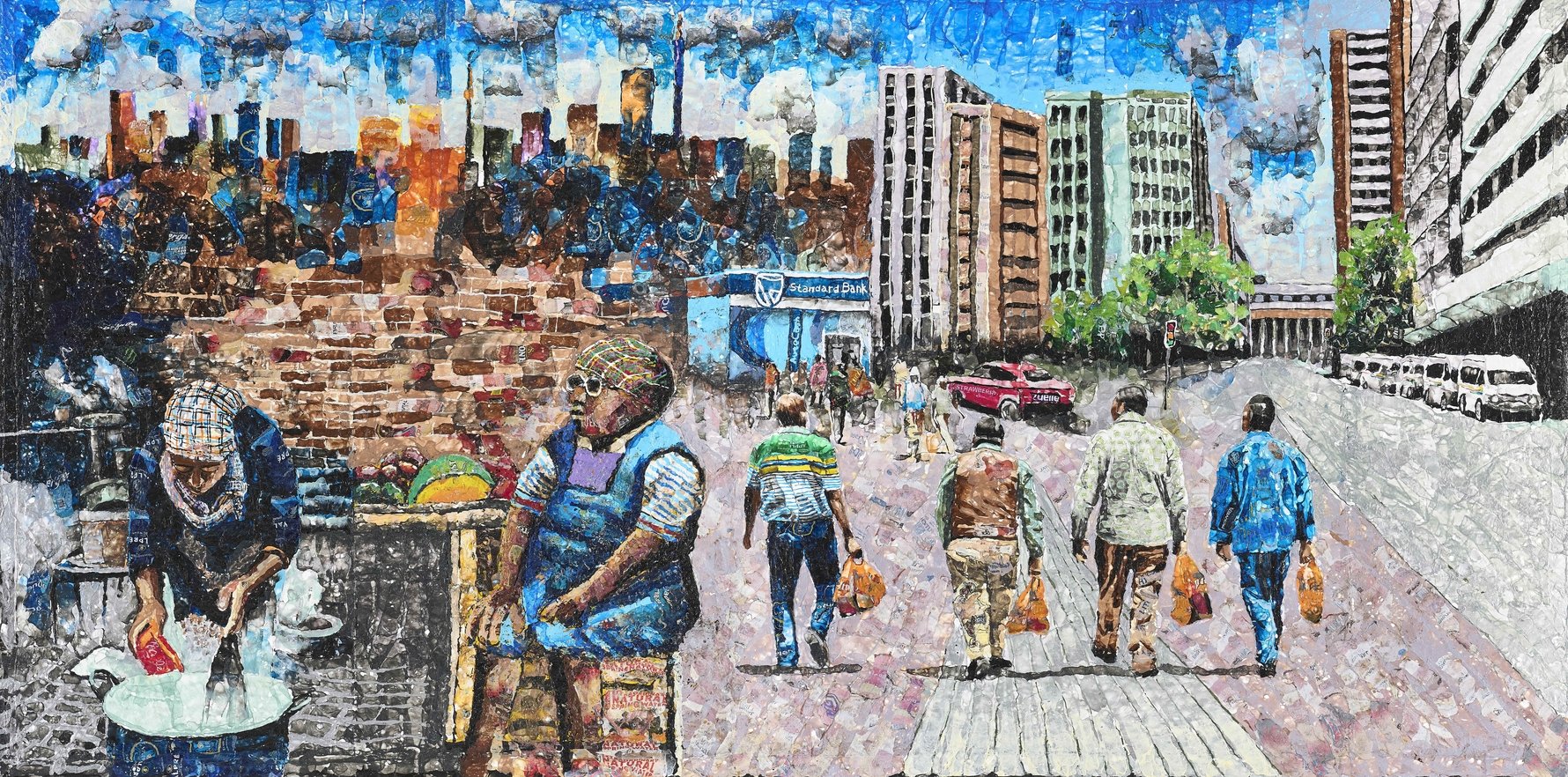
This new work, currently installed at Standard Bank Rosebank (there is a plan for it to be moved to other sites), is staggering in its proportions and intensity of colour. It’s a full picture of the city, conveying many aspects that give our streets life. The piece invites you to look further, and when examined closely, you are transported into the city through different fragments of what gives the place life.
In the top left-hand corner is a golden-hued cityscape, while just beneath it a jagged wall of brickwork encloses two women who are depicted in a scene straight from the city’s oldest healers' market, Kwa Mai Mai. Four men stroll the streets casually, shopping bags in hand, while a familiar line of taxis is arrayed on the roadside ahead of them. The colours appear to bubble up off the canvas. The piece was unveiled at the bank's Rosebank headquarters on April 16, 2024.
Buthelezi joined last year's clean-ups weekly, and when we joined he directed us to sort the trash into usable and unusable plastics. He works out of a studio in Booysens, and much of his work displays his intimacy with the city. It is more than familiar to him, and this new work beautifully captures the artist's relationship to this place, the nuances of street life, and the cityscape down to minute detail. We visited the artist at his studio mid-process and were astounded by the scale of the work, and its unfolding story. For Buthelezi, this project completes a circle, as he was invited to display work at an exhibition with Standard Bank when he first started as an artist.
Joburg’s once proud city streets are broken by neglect and awash with litter. Its thoroughfares are made dangerous by speeding taxis and traffic lights almost permanently out of order as the city reels from successive bouts of load-shedding. How do you start to tackle the city that Joburg has become?
The four-week clean-up we joined in November, hosted by Standard Bank as the first leg of a project with Jozi My Jozi, was brought together by creative agency We Are Bizarre. Tackling litter was grouped in four designated areas: Simmonds Street and surrounds (where the bank's city office is located), the Johannesburg Central Magistrate Court precinct, Metro and Bree taxi ranks, and Queen Elizabeth Bridge Park.
Before you even start to question the impact of this kind of project, we ask you to keep
reading.
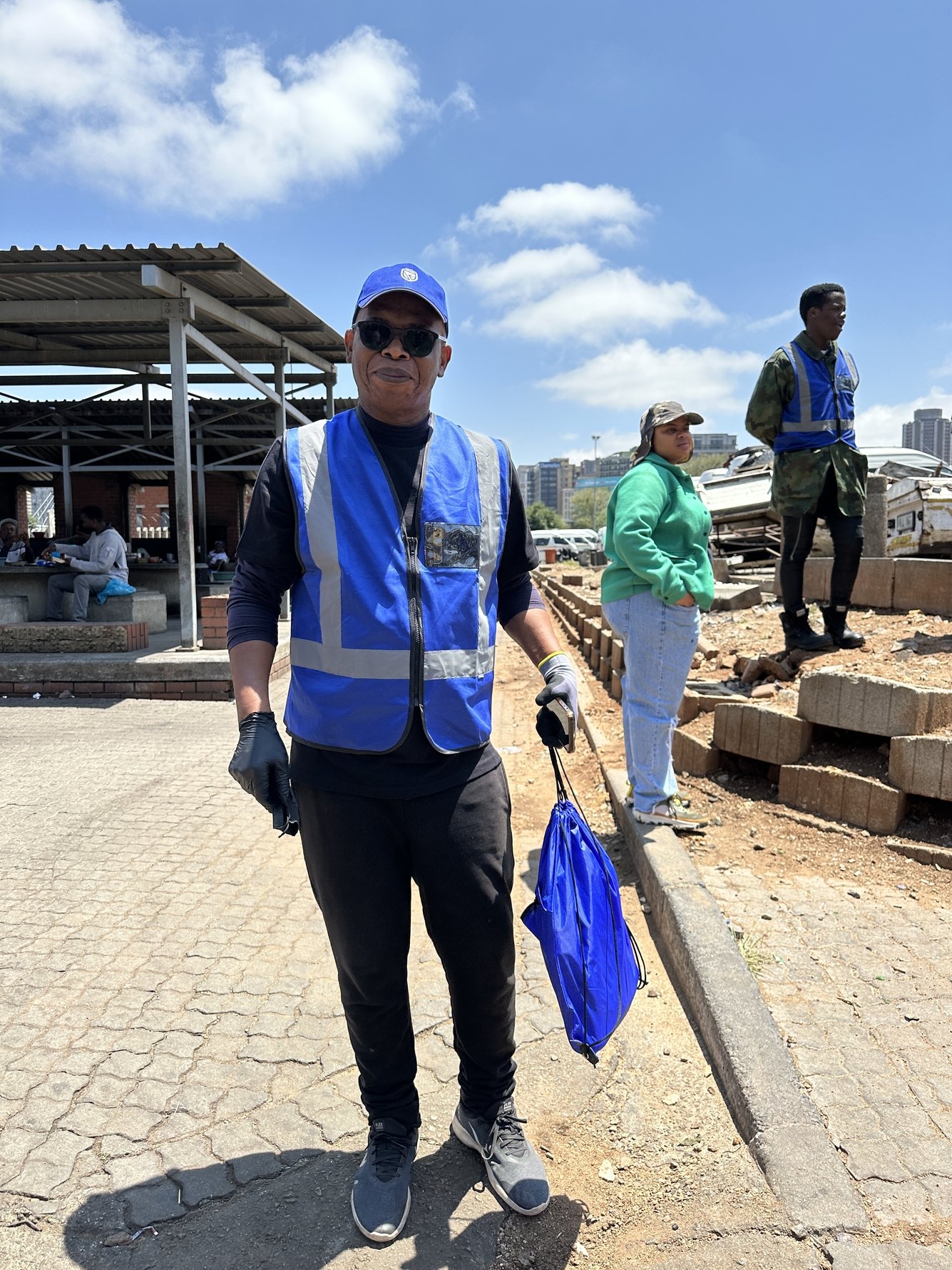
Photo: Johannesburg In Your Pocket.
We often hear people lament the litter (we often do it ourselves, too) in the Joburg City Centre, but for the first time, through this project, we started to discern its real meaning. Raking through the debris of Joburg's urban existence, you begin to understand the social ills attacking the city's very fabric. The shortage of decent accommodation, lack of mental health services, poverty, and crime. The signs are all there: the discarded spark plug used to smash a window under the Eloff Street bridge, the empty wallet left lying amongst the weeds on the verges, the soiled clothing that is the trace of life on Joburg's margins.
It’s with this in mind that Jozi My Jozi, a private-sector coalition now working with the City of Johannesburg, has been set up. You can read more about this here.
Standard Bank led this project, and over four Wednesdays the bank's team showed up in force in a parking lot opposite its Simmonds Street headquarters, also home to the Standard Bank Gallery and the city’s historic mining stope museum. Over the month, more than 500 people took part in the clean-ups. We attended each one.
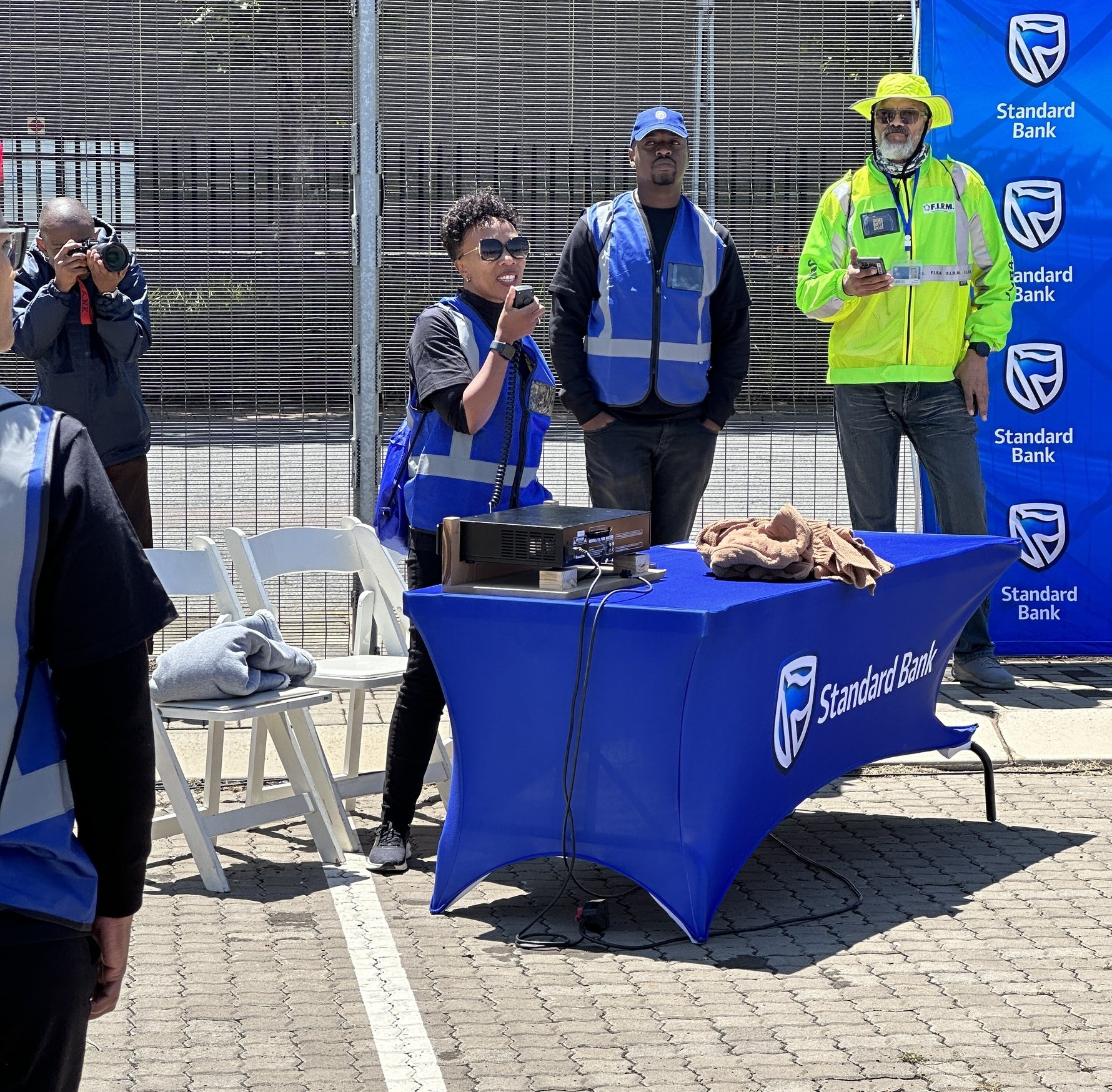
We spoke to Yolisa Koza, Standard Bank's head of brand experience, to find out more. “We’ve got a big presence in the inner city. Our Simmonds Street precinct, off the highway, stands loud and proud. We have employees that work there, and we’ve got our corporate art collection that is still based there. So we are still invested in the city and we want to make sure that the city can transform itself into that shining city it once was. When we were approached with the Jozi My Jozi's idea it was almost a no-brainer. ”
Visiting the glass and steel, light-filled headquarters of Standard Bank in Rosebank, we were struck by the number 1862, the year the bank was first founded. This pre-dates Johannesburg by some years when the bank moved its operations to the burgeoning gold fields. Standard Bank has, in its time, seen many versions of the city come and go.
Jozi My Jozi has been part of a two-year discussion, underpinned by the belief in being the change you want to see. The process has entailed identifying all the different societal issues and challenges the city faces – from tackling education to safety and security, and of course, commerce (the lifeblood of all cities).
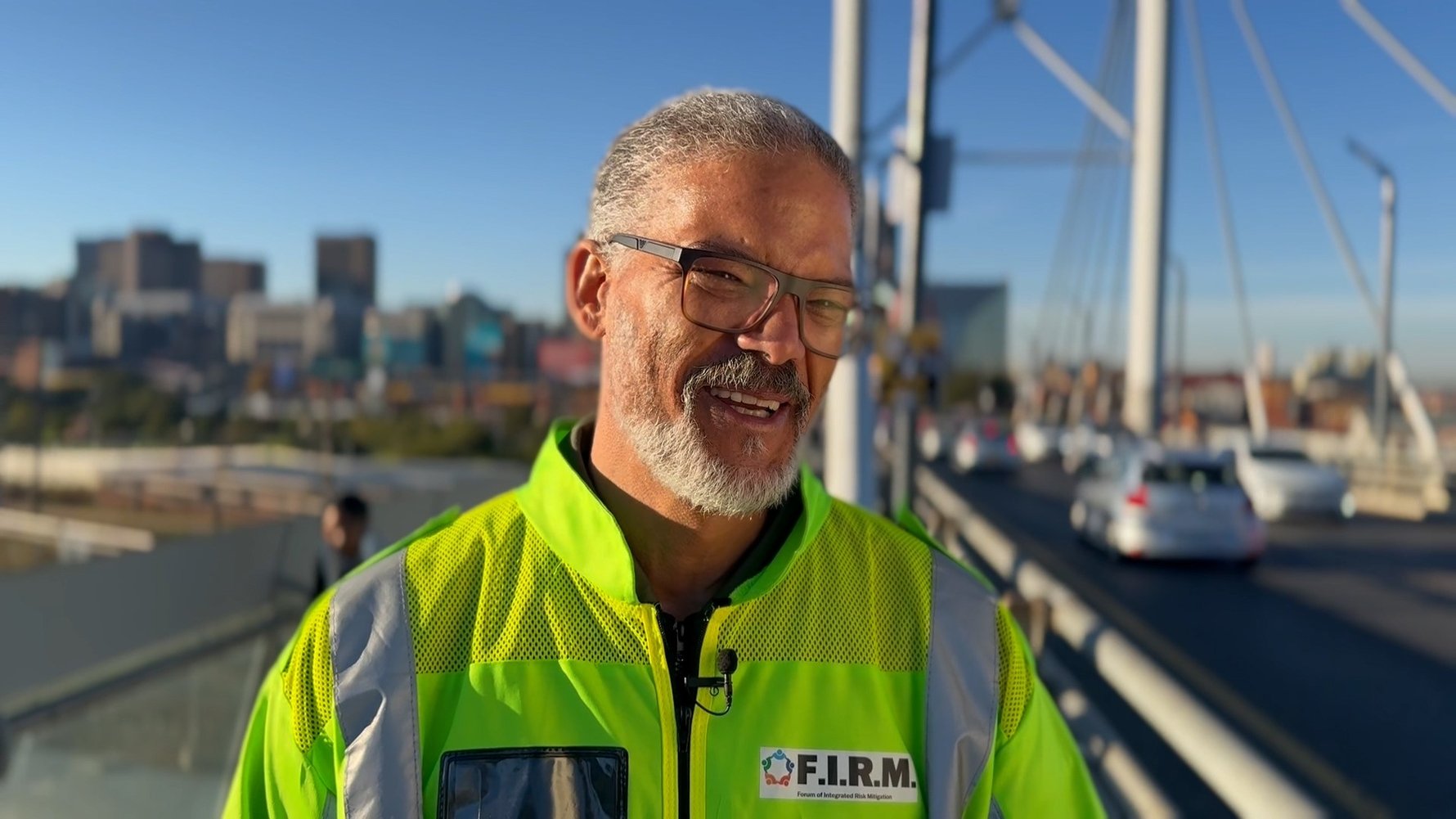
“And then,” says Koza, “it was … where do we start? And we just thought to do something that could address safety and security, could quickly be mobilised, and that could involve our own employees. We asked, 'What can we mobilise within the next month, as quickly as that?' and we decided on cleaning up the city. It’s something that we knew our employees would want to be a part of. We also want to support an initiative that was action-oriented, as opposed to just giving money. Giving money is almost the easiest way because you're not invested and involved in the work.”
Koza says Jozi My Jozi initiatives are action-oriented, rather than relying on funding first. “We have come to understand that the resources of government can only go so far – government can be an enabler, but corporates can bring innovation, resources, and a network to bear.”
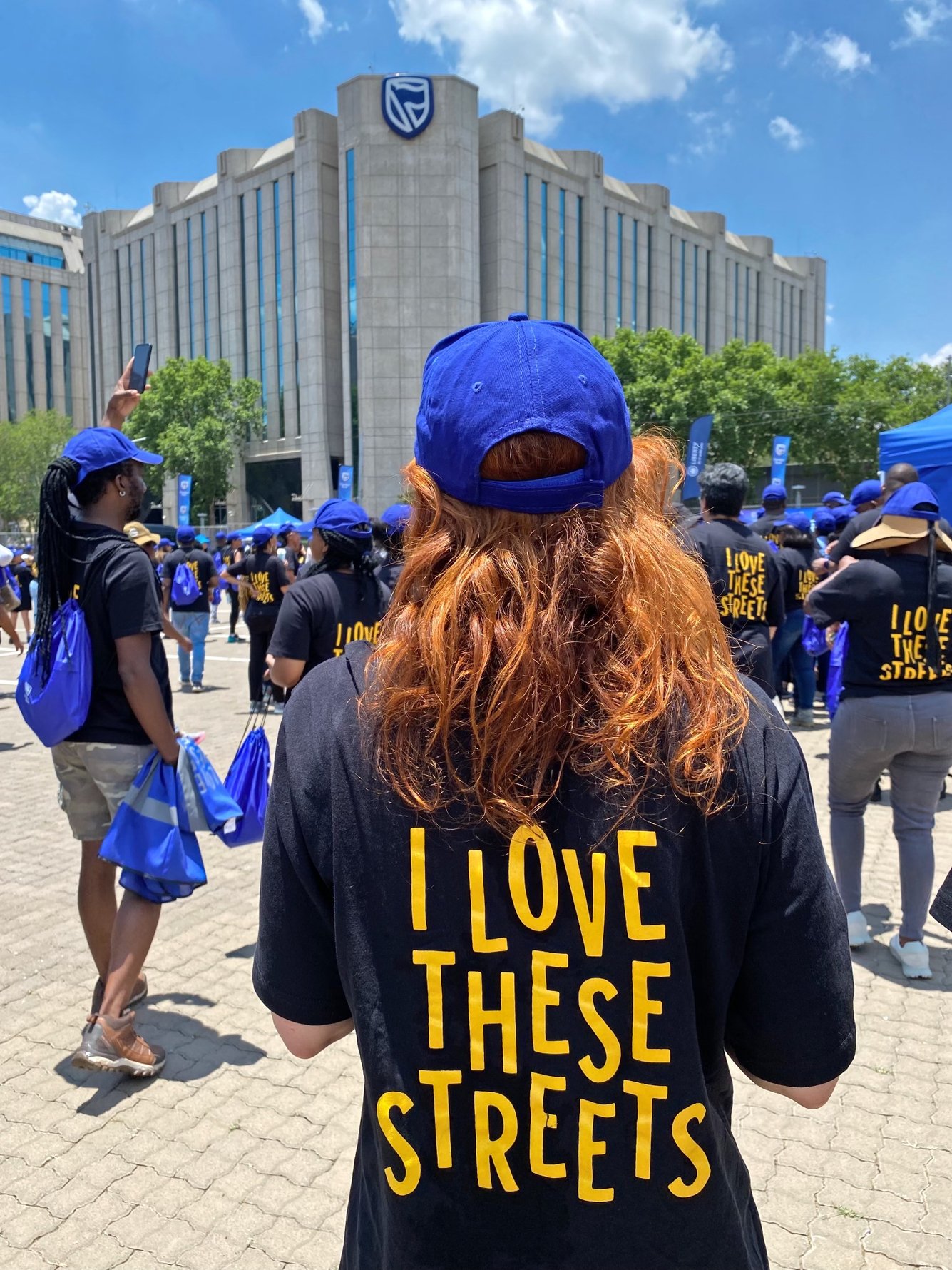
Standard Bank is a key part of the not-for-profit collective called The F.I.R.M. (Forum for Integrated Risk Management) who connect security initiatives across the inner city. At its head is Wayne Dawson, who is also part of the leadership team within Standard Bank Physical Security. He is an extraordinary compère who made sure that every clean-up started with a song and a dance, and each week the ranks were swelled by willing collaborators from Pikitup, Woza Work, and Clean City SA.
Besides Standard Bank staff in the city joining the clean-ups, there was soon interest from outlying bank branches and even other banks in the city. A future clean-up initiative is on the cards.
“This is the heart of Jozi My Jozi, an initiative that aims to be a connector and work across the city to help mobilise the power of collaboration. If we give people an avenue…,” says Koza.
Standard Bank is now considering new initiatives, and potentially expanding the clean-ups to the weekends where staff who wanted to bring their kids could join in as families. As Koza puts it, “People do want to get involved, they just often don't know how. And with all of these things, it’s about finding willing partners who have the same mission and vision and want to do something, and then we pool our resources together."
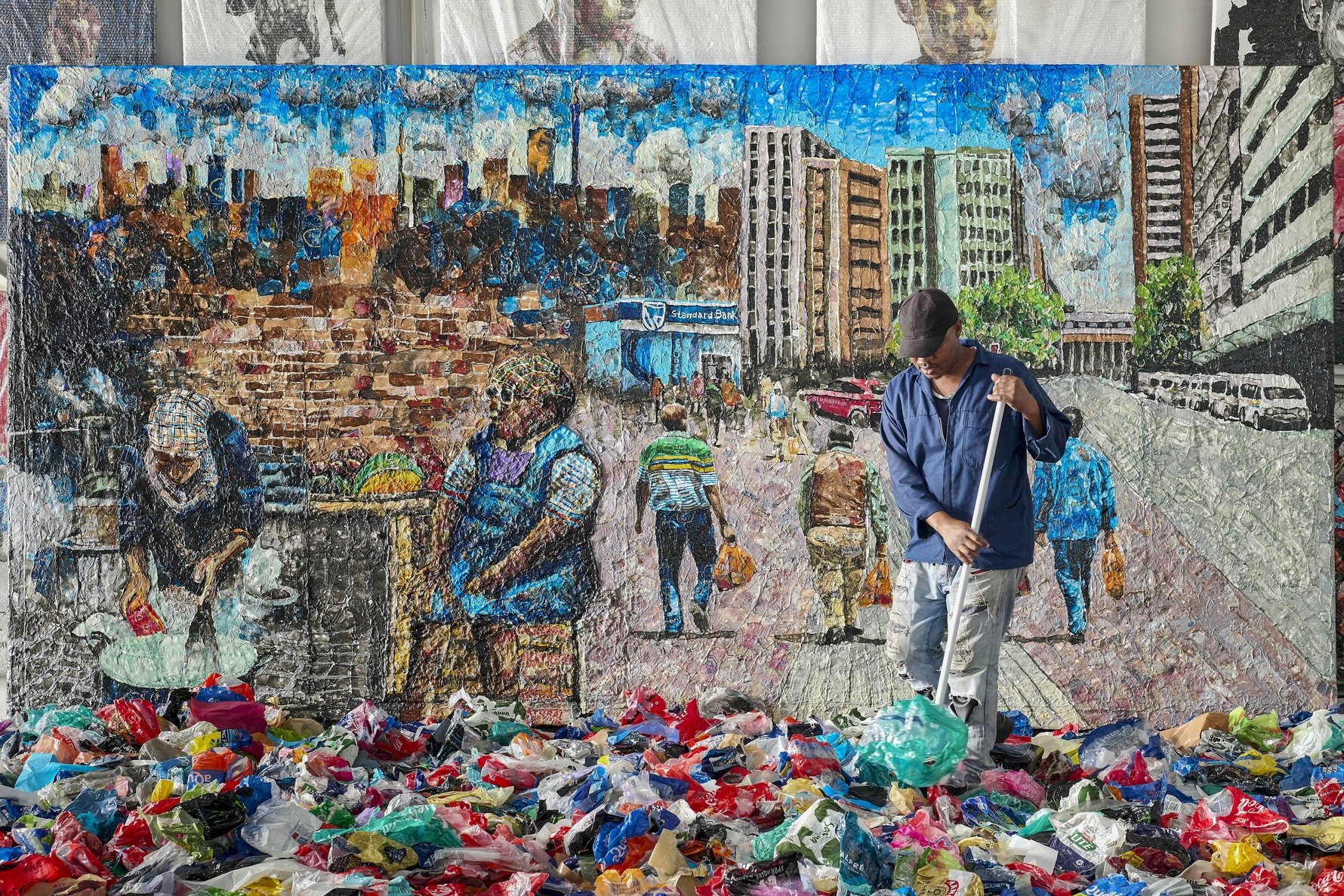
This project and Jozi My Jozi is a work in progress that we’ll track as it unfolds. As a publication that has closely followed the ups and downs of Joburg over the past decade, it's close to our hearts.
One thing you learn quickly when you start picking up trash in the city is to respect those who do this job daily. It's not easy or pleasant. It’s also back-breaking. Trash bags tend to get heavy and weigh you down. The items you encounter require safety equipment, and on a hot summer day, the stench can be overwhelming. From inadvertently touching a dead and decaying rat to encountering live ones, you come across the unfinished stories of greasy clothing and discarded single shoes, tossed-out wallets, and soon realise that you are in someone’s living space as you walk on ground you wouldn’t usually traverse without security.
We found hundreds of Halls lozenge wrappers that probably soothed a lot of throats but are a giant headache, and the remains of what might have seemed like a fun SIM card promotion thought up by a thoughtless PR team, given out at taxi ranks and now detritus under the bridges, clogging the stormwater drains. And of course plastic of every colour, shape, and size.
Of course, the more you pick up, the more there seems to be. Small victories. But maybe when you match the right people who believe in making a long-term difference in the city, you can bring about the change you want to see. The sounds of MiCasa rang out from the speakers in that parking lot each week, the words still resonating as Dawson stirred up the crowd and inspired a small army who wanted to collect trash.
“These streets, that we live upon
These streets, that we walk upon…
They give us, life…
Now I'm so convinced what we have
Is like gold
How we hold it and mould it
Determines how we will grow.”



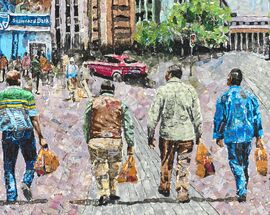



Comments